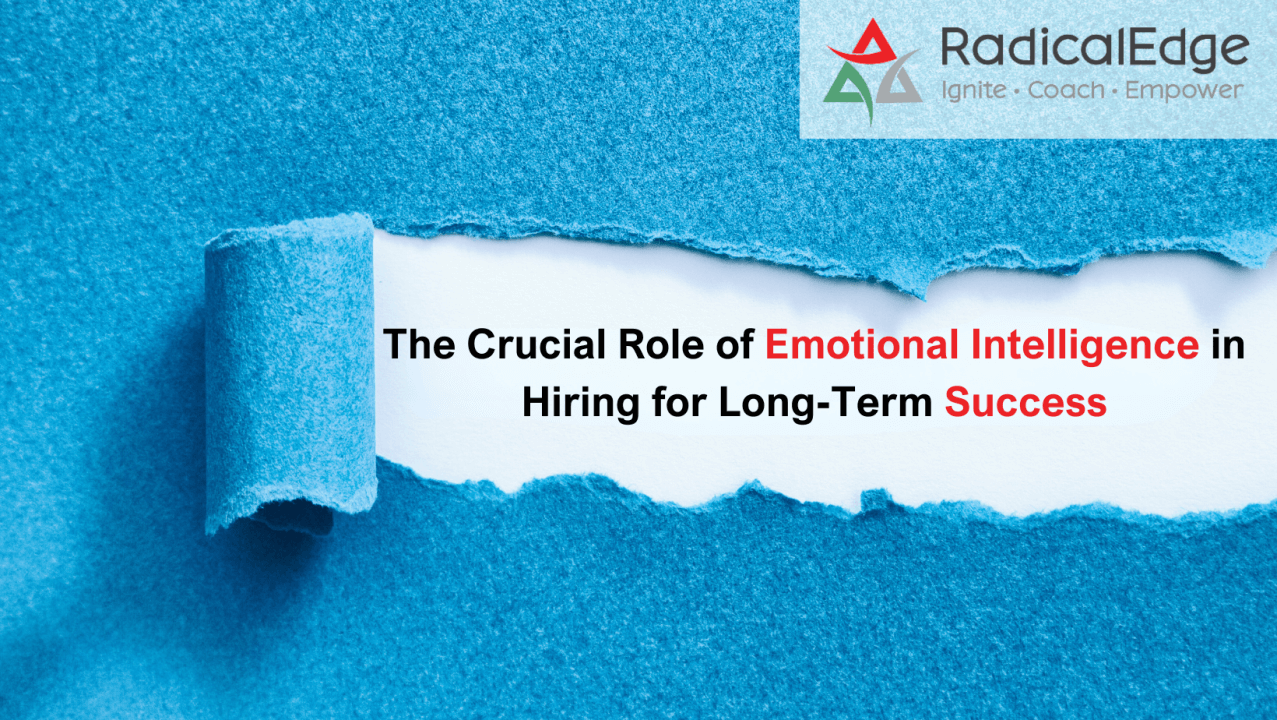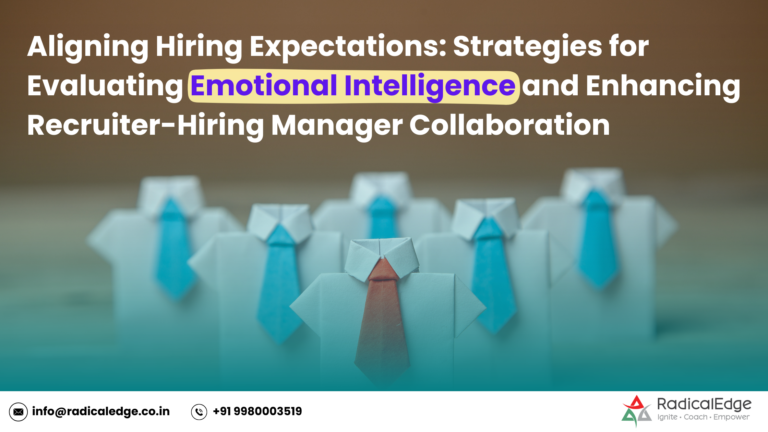One common misconception about measuring Emotional Intelligence (EI) is likening it to a personality test. In reality, EI is more about how individuals use and manage their emotions. Unlike personality traits, emotional skills can be enhanced, making it a vital factor in hiring decisions. By prioritizing emotional intelligence in the hiring process, organizations can assess not only a candidate’s fit for a role but also the alignment of their values with the company’s, contributing to seamless integration into the team.
The Impact of EI on Employee Productivity:
Hiring with emotional intelligence in mind goes beyond ensuring technical qualifications; it focuses on a candidate’s ability to thrive in a role, preventing potential drains on motivation, productivity, and energy. Measuring EI becomes essential to identify strategies that lead to success, helping employees reach their maximum potential and uncovering HR blind spots that could impede individual and team achievements.
Employee Patterns for Long-Term ROI:
Emphasizing emotional intelligence in hiring is transformative. Matching individuals with the right roles based on their skills, motivations, and goals not only enhances individual success but also contributes to the development of high-functioning internal teams. This strategic approach aids in addressing HR issues, assigning tasks, and ultimately aligning the workforce with business goals.
Benefits of Using EI in Hiring:
Several benefits arise from using emotional intelligence to build a cohesive and productive workforce, including:
- Lower costs associated with employee turnover.
- Reduction in time wasted managing low-energy, demotivated employees.
- Motivated and happy employees who utilize their time effectively and work harder.
- A positive work environment contributes to a happy, motivated workforce.
Elements of Emotional Intelligence in the Workplace:
Understanding foundational components of emotional intelligence is crucial for workplace success:
- Social skills: Critical for effective communication and relationship-building.
- Self-awareness: Knowing strengths, weaknesses, and values, fostering confidence and openness to constructive criticism.
- Empathy: Understanding others’ emotional states, is essential for decision-making, cross-cultural sensitivity, and team building.
- Self-management: Redirecting disruptive moods and impulses, reframing emotions positively, and maintaining objectivity in decision-making.
- Motivation: Enjoying a sense of accomplishment, working with passion, and maintaining an optimistic perspective.
High EQ vs. Low EQ in the Workplace:
High EQ individuals demonstrate better decision-making, conflict resolution, empathy, and effective communication. In contrast, low EQ individuals may exhibit a victim mentality, poor communication styles, resistance to teamwork, and a critical attitude.
Conclusion
Prioritizing high EQ individuals not only benefits the new hires but also elevates the performance of existing employees, fostering a positive company culture aligned with long-term success.
We at Radicaledge Learning Consultants are committed to unlocking the full potential of individuals and teams through strategic hiring practices.
Connect with us – info@radicaledge.co.in





